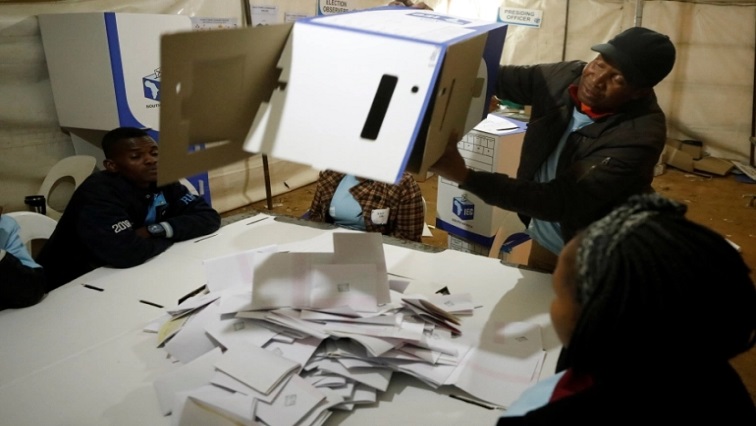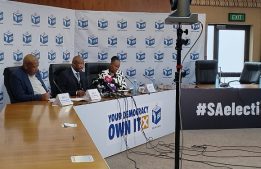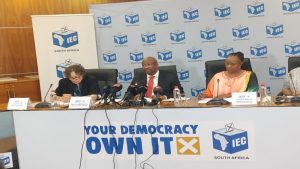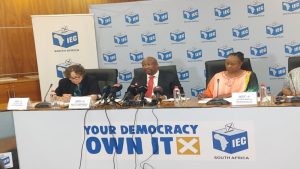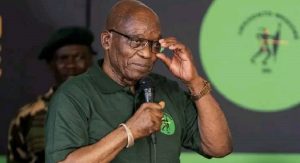The Independent Electoral Commission (IEC) is expected to brief the National Council of Provinces (NCOP) Select Committee on Security and Justice on the Electoral Amendment Bill on Wednesday morning. The briefing will focus on the allocation of seats.
The Bill seeks to give independent candidates the right to participate in the National and Provincial Elections and compete for representation in the National Assembly and Provincial Legislatures. The New Nation Movement and a group of other independent candidates successfully challenged the constitutionality of the Electoral Act in the Constitutional Court in June more than two years ago.
Constitutional Court Justice Mbuyiseli Madlanga declared the Act unconstitutional on 11 June 2020 as it required that adult citizens may only be elected to the National Assembly and Provincial Legislatures through their membership of political parties:
“The declaration of unconstitutionality is prospective with effect from the date of this order but its operation is suspended for 24 months to afford Parliament to remedy the defect giving rise to the unconstitutionality”, said Madlanga during the ruling.
Parly failed to meet June ConCourt deadline, requested extension
Parliament had to rectify the defect in the Act by June this year but could not meet the deadline. This after Home Affairs only tabled the Bill to Parliament in January 2022, six months before the ConCourt deadline. The National Legislature successfully applied to the ConCourt for a six-month extension, to finalise amending the Electoral Act. The extended ConCourt deadline is on 10 December.
The National Assembly considered and passed the Bill on 20 October 2022 with 232 MPs voting in favour, 98 were against it and there were three abstentions.
The parties that voted in favour of the Bill were the African National Congress (ANC), Economic Freedom Fighters (EFF), Pan Africanist Congress (PAC), Al Jama Ah and the National Freedom Party (NFP).
The Democratic Alliance (DA), African Christian Democratic Party ( ACDP), Inkatha Freedom Party (IFP), Freedom Front Plus (FF-PLUS) and Congress of the People (COPE) voted against the Bill in its current form, while the Good Party (GOOD) and the African Independent Congress (AIC) abstained from voting.
The passing of the Bill came despite calls from a group of Civil Society Organisations criticising the Bill in its current form. They called for electoral reform and urged MPs not to vote on the Bill.
During the debate on the Bill, Home Affairs Minister Dr Aaron Motsoaledi said the criticism against the Bill was based on a misunderstanding of the Constitutional Court judgment. He said the main purpose of the Amendment Bill was to comply with the ConCourt directive which related to independent candidates.
” I wish to observe that much of the criticism against the Bill comes from civil society and we are very happy that civil society participated. It’s very important in our participatory democracy. However, I wish to highlight that much of the criticism is based on the misunderstanding of the Constitutional Court judgment and the contention that the judgment obligate Parliament to change the electoral system beyond just accommodating independents. That’s simply not correct as a matter of law, as I have explained”, Motsoaledi emphasised during a special hybrid National Assembly sitting where the Bill was considered and passed.
Bill not in line with just electoral practices: SACC
The South African Council of Churches (SACC) which joined other civil society organisation, had also called on Parliamentarians not to vote for the Bill on the day it was brought before the Assembly, but without any success. The SACC argued that the amendments were not in line with what it termed “just electoral practice”, saying it will likely not pass constitutional muster.
“The current draft of the Electoral Amendments Bill that sits before Parliament does not do justice to independents and those who will vote for them. Bishop Mpumlwana said individual independent candidates are made to compete unfairly with political parties for votes, and in this scheme, they will also stand to lose the impact of votes beyond the basic number required for a seat. If a seat in Parliament is worth 50 000 votes and an independent candidate gets 500 000 votes, only 50 000 will count and all of 450 000 ballots cast away. Yet a political party with the same number of votes will lose no votes and register 10 MPs. Thus, on this alone, allowing the Bill to pass would be a travesty of justice”, said the SACC Community Liaison Director of the Council of Churches , Reverend Mzwandile Molo, who gave reasons why MPs should not vote for the Bill.
The Assembly ultimately passed the Bill
“The results of the division are as follows: The Yes’s are 232, the NOs 98, and the abstentions are three. The question is accordingly agreed to, and the Electoral Amendment Bill has accordingly been read for the second time and has been sent to the National Council of Provinces for concurrence”, House Chairperson Madala Ntombela, read the voting results during the special hybrid sitting before he adjourned the House.
Now that the Bill is in the hands of the NCOP, further public participation will be conducted.
Wednesday’s IEC briefing to the Select Committee on Security and Justice comes as Parliament remains under pressure to meet the extended constitutional deadline in a month’s time.
Wednesday is also the closing date for the public to make written submissions on the Electoral Amendment Bill.
DISCUSSION | Passing of the Electoral Amendment Bill


